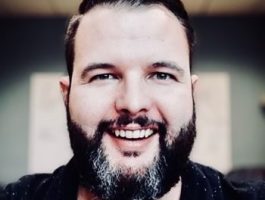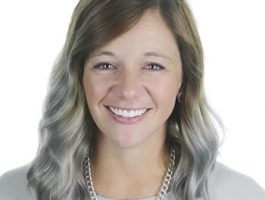
Bridging the Generation Gap
David Eaton and Melanie Mudge, along with the rest of their team at Axis, help pastors, parents, and teachers across the country understand teen culture. They tell listeners how, in an information-saturated society, our teens need to look to God's Word, as well as their parents, for answers.
Show Notes
About the Host
About the Guest
-
Dave and Ann Wilson
Dave and Ann Wilson are hosts of FamilyLife Today®, FamilyLife’s nationally-syndicated radio program. Dave and Ann have been married for more than 38 years and have spent the last 33 teaching and mentoring couples and parents across the country. They have been featured speakers at FamilyLife’s Weekend to Remember® marriage getaway since 1993 and have also hosted their own marriage conferences across the country. Cofounders of Kensington Church—a national, multicampus church that hosts more than 14,000 visitors every weekend—the Wilsons are the creative force behind DVD teaching series Rock Your Marriage and The Survival Guide To Parenting, as well as authors of the recently released book Vertical Marriage (Zondervan, 2019). Dave is a graduate of the International School of Theology, where he received a Master of Divinity degree. A Ball State University Hall of Fame quarterback, Dave served the Detroit Lions as chaplain for 33 years. Ann attended the University of Kentucky. She has been active alongside Dave in ministry as a speaker, writer, small-group leader, and mentor to countless wives of professional athletes. The Wilsons live in the Detroit area. They have three grown sons, CJ, Austin, and Cody, three daughters-in-law, and a growing number of grandchildren.
-

David Eaton
David Eaton is a cofounder of Axis which started in 2007. In 2017, Axis teams spoke to 24,000 students, provided resources to 80,000 parents, and helped start 1 million conversations between caring adults and teens. The magic of Axis is Culture Translation: interpreting student trends for parents while translating timeless theology, philosophy, and essential questions of life for their teens. Axis believes in the power of life-on-life discipleship between caring adults and the next generation!
Melanie Mudge
Originally from Albuquerque, NM, Melanie lives in Durango, CO with her husband Josh and their dog Diesel. She studied entrepreneurship and business at the University of New Mexico, where she earned her BBA in 2010. She wrote, edited, and studied teen culture for Axis, of which she was a part of starting in 2010.
David Eaton and Melanie Mudge tell listeners how, in an information-saturated society, our teens need to look to God’s Word, as well as their parents, for answers.
Bridging the Generation Gap
Bob: Yes.
David: Am I going to get her mixed reality goggles?—is that what you’re asking?—or am I going to virtual reality headset? Am I going to get her the teleportation device?
Bob: When 50 percent of her social life is going to be tied to whatever the new technology is—
David: Right.
Bob: —that’s what you just said—are you going to exclude her from 50 percent of her social life, or are you going to go with the new technology for her?
David: Well, I’ve started now—already having these conversations of trying to think about it.
12:00
When Shiloh was born, my mom bought an iPad®. My mom, who doesn’t like technology, bought an iPad—amazing; right?—because she could FaceTime because we live, you know, 12 hours apart. Guess what else she bought? She bought this kid’s devotional book. So, all of a sudden, she can FaceTime; and she can use this very good but cursed thing and redeem it—and have these wonderful connections with her granddaughter. I think the conversation that we will continually have with any piece of technology is “What is it for?”
So, okay—smartphones—you can do a ton of incredible things with them; right? But if you can’t interact with real people / if they cause us to miss out on the depth of relationship that our souls are made for and this great connection—if we can’t put it aside so we can have solitude with God—I mean, these are some things that are really important to what it means to be human—
Dennis: Yes.
David: —then, I think the conversation is always going to be about “What kind of boundaries?” I mean, adults know how to self-regulate.
13:00
We’re always learning—that’s one of the signs of adulthood: “So, how can we self-regulate?”
What I’ve seen right now—again, I don’t know what’s going to happen five years from now—what’s the new technology? I’m excited that Axis exists so that I can depend on it five years from now, but I’ve seen great families have cell phone curfews at night. I’ve seen great families who don’t have phones in their bedrooms. I’ve seen great families who treat the cell phone equally as far as like the dads have the same rules on their phones as they have for their kids. They invite that kind of accountability, but these are all higher principles, where they say, “Community is better than isolation.”
Dennis: So, are you going to get a phone for your daughter when she’s 10/11/12?
David: Probably. This is what I’m going to do that’s going to be crazy / this is what I’m going to do that people hate—and this is what I already do for myself—is I am going to limit its functionality. I’m going to give her a phone that doesn’t have the app store on it, that doesn’t have free range on the internet on it, that doesn’t have certain features on it.
14:00
Then, we’re also going to talk about it and also know that: “This is Daddy’s phone and not your phone; but really, it’s not Daddy’s phone. It’s God’s phone,” So: “As this piece of technology—that God owns / that He’s allowed us to steward—we want to honor Him with it, and we don’t want to miss out on the good things in life.”
Dennis: And what I want our parents to know, who are listening here, is: “You’re going to use that’s phone’s functionality to ground them, to take privileges away from them, where you can reduce functionality on the phone.” Are you with me? “If you don’t make your grades…”
Bob: It’s a great opportunity for consequences—
Dennis: I’m telling you—it really is.
Bob: —behavior consequences.
Dennis: No doubt!
Bob: Yes.
Dennis: So, Melanie, what about you?
Melanie: If I ever have kids, I probably would get them a phone as well. I actually have—right now, I have two nephews and two nieces. It’s gotten me to start thinking very differently. Looking at those little ones, I’m like, “What is the world going to be like when they hit 10/11/12?”
Dennis: No doubt.
Melanie: They are so sweet and innocent right now. I want to protect them; but at the same time, I’ve also seen the consequences of that protection gone too far in some of my friends’ lives.
15:00
It doesn’t do them any favors to pretend like the world we live in isn’t the way it is; because, eventually, they are going to go out on their own. Eventually, they’re going to have access. It might even be while they’re 10/11/12, because all of their friends are going to have the phones.
Dennis: Yes.
Melanie: So, even if they don’t have one, they are going to know how to use that device.
David: Which is huge—because we’ve talked about this: “Oh, you can put all these limits on it,” and it’s like: “Where do you see porn for the first time?” “I saw it on my friend’s phone.”
Dennis: We have a tool, here, at FamilyLife® called Passport2Purity®. In that resource is a getaway—a mother and a daughter before the daughter turns 13/14 years old / and a father/son getaway—it’s a Friday night / Saturday—and a kit that the parent drives and the parent leads. The parent is the hero of the time with the child.
Well, one of the things we talk about in Passport2Purity is helping your children anticipate the issues they’re going to face and decide, in advance, like Daniel did in the Old Testament, who made up his mind, in advance, he wouldn’t defile himself with the king’s food.
16:00
When he faced the choice, he was already 95 percent of the way there—he had already decided what he was going to do. A lot of kids today really need their mothers and their fathers to be engaged and involved in their lives, helping them draw those boundaries in anticipation of drinking, drugs, maybe slipping off to a movie that they shouldn’t go see—helping them decide before the peer pressure hits. If you do that, you’ll be ahead of the game with your kids.
David: And always trying to cultivate their vision of what the good life and what the gospel is. So, when you’re talking about drinking, and drugs, and sex—that you are talking about how these are—could be very good things that are cursed. It even sounds weird to say that, even about drugs; but you know, there are medicinal uses for drugs that are amazing—
17:00
Bob: Yes.
David: —and you can use in the right context.
I remember when my wife had surgery, and they were like, “Here is some cocaine.” I’m like, “What are you doing?!” It’s like topical cocaine, but it helped—you know what I mean? So, there was a context for that. You always want to cultivate their vision so it’s not just rules for rules’ sake or boundaries for boundaries’ sake; but “What is the bigger picture of what we’re missing out on?”
Bob: I’m just sitting here thinking about this principle of parenting, which is—we live in a world where the flu is all around us; right? Now, you can say, “I’m going to deal with this by putting my child in an isolation chamber, where they will never be exposed to the flu; and I’ll keep them safe that way.” Well, that doesn’t work for a life strategy.
David: Right.
Dennis: No.
Bob: Or you can figure out how to get the vaccine and how to give them a little bit of the flu—and talk through it and work through it—so that they are strong in the face of the flu. They are living in a flu-infested world; but they don’t get the flu, because we’ve taken the preventative measures.
18:00
That’s a better strategy than just “We’re not going to have the internet in our home,” or “We’re going to live in the woods,” or “We’re going to do the isolation chamber approach.”
David: And I think about—this is a story about my mom—good old Brenda Eaton—and Passport2Purity; right?—this idea of you’ve got to have a sex talk with your kid. You can’t just have a sex talk with your kid, because sex is a conversation that’s happening in their life all the time—
Dennis: Right.
David: —in school and on their phones. So, it’s not just one bird-and-the-bees talk.
Dennis: That’s right.
David: It’s like this ongoing thing.
So, my mom used to say this to me, as awkward as it was—she went to some talk somewhere—and she would say: “I love you. I’m proud of you, and I don’t want you to have sex until you’re married.” [Laughter] So, here I am—7th grade, awkward David. Mom says: “I love you. I’m proud of you. I don’t want you to have sex until you’re married.” So, it was just kind of part of the conversation—she would sign birthday cards saying, “I love you. I’m proud of you…”—you know? I knew what the “fill in the blank” was. [Laughter]
19:00
It kind of created this expectation / this hope. Maybe she could have said: “And here is why; because I want you to have an amazing marriage someday. I want you to have something to really offer and appreciate the goodness of sexual intimacy, and procreation, and et cetera.” I think she modeled that, as well, just with their marriage—my parents loved each other very deeply—but that ongoing conversation. There are so many things that are happening that—you can’t outsource that to some—
Dennis: No.
David: —favorite teacher, or a coach, or a youth pastor, or a [senior] pastor. They can all serve your family and support you in that. This radio show can do that; right?—it’s doing that [support role]; but there is no one like a mom or a dad who is going to have that one conversation that lasts a lifetime, Lord willing, with your kids.
Dennis: I couldn’t agree more. God did not give your children to the coach, to the Sunday school teacher, to the teacher at school. He gave your children to you, as Mom and Dad; and your assignment is a great privilege. I’m telling you—some of the most incredible conversations, today even, that I’m having with our adult children—
20:00
—as you said—started way back when they were little—three/four/five—building the relationship with them. It really is a great privilege.
One of the conversations I was thinking of was when our last daughter got married. I met with her fiancée for six times.
David: Ooh. [Laughter]
Dennis: Yes.
David: Six times?!
Dennis: Six times.
David: “Get him!”
Dennis: It was supposed to be—
David: “Get him, Dad!”
Dennis: —six 60-minute conversations, and it was 90 minutes. One of them went two hours. It’s driving our daughter crazy, wondering what I’m saying to him. [Laughter]
I’m just telling you—these conversations mark young people’s lives in ways you’ll never ever know. Assume your responsibility—step into the fear, be courageous, and initiate conversations around the issues your children are facing.
Bob: You talked about Passport2Purity. We had a dad tell us:
21:00
“If I just had four or five experiences like this to go through with my kids, during the time that they’re at home before they leave home as teenagers, I’d be farther ahead than most dads are.” So, we have created, now, Passport2Purity and Passport2Identity®. One is for parents of preteens, before adolescences kicks in; one is something you do with your kids, maybe, a couple of years after you’ve taken them through Passport2Purity, when they are 13 or 14 years old—help them through the difficult season of those middle teenage years.
Of course, right now, we are working on our Art of Parenting video series that will be released in May. Dennis and Barbara are writing a book called The Art of Parenting. Here, at FamilyLife, we want to provide you with tools and resources to help you, as a parent, help your kids through what can be a very challenging season of life.
Go to our website, FamilyLifeToday.com, for more information about the resources we have available.
22:00
You can also sign up, online, for what David and Melanie put together—The Culture Translator, a weekly email that comes out to moms and dads, helping you be aware of what’s going on in the culture, what your kids know about music and movies, and what’s cool on the web—stuff that you may be out of the loop on, but they are very much in the loop on.
You can sign up for that—it’s a free email / it comes out every week. Go to FamilyLifeToday.com for more information about how to get The Culture Translator or to get the resources we’ve talked about; or call if you have any questions—1-800-FL-TODAY is our number / 1-800-358-6329—that’s 1-800-“F” as in family, “L” as in life, and then the word, “TODAY.”
You know, our goal, here, at FamilyLife® is to help moms and dads / husbands and wives think biblically about issues related to marriage and family. We want to effectively develop godly marriages and families; because we believe godly marriages and families can change the world, one home at a time.
23:00
We’ve got an event coming up this spring—it’s going to be April 21st. It’s in Charlotte, North Carolina; but it’s going to be livestreamed all around the country and, really, all around the world. There are going to be churches and small groups getting together to go through the Blended and Blessed™ event that Ron Deal is hosting to help couples, who are in blended families, know how to navigate the challenges of blended families.
Again, there is more information, online, at the Blended and Blessed event—you can go to FamilyLifeToday.com for that. I mention it; because I want you to know that, when you support this ministry, this is one of the things you are helping to support. In fact, if you can make a donation today to help support the ministry, you can help us defray the costs associated with producing and distributing an event like this, online, for people to engage with.
You can donate to our ministry, online, at FamilyLifeToday.com; you can donate by calling 1-800-FL-TODAY; or if you’d like to mail your donation, you can do that as well.
24:00
Our address is FamilyLife Today at PO Box 7111, Little Rock, AR; and our zip code is 72223.
We hope you can join us back again tomorrow. We’re going to continue our conversation about teens, and technology, and peer pressure, and all the stuff that kids are going through in 2018. David Eaton and Melanie Mudge will be back with us. I hope you can be with us as well.
I want to thank our engineer today, Keith Lynch, and our entire broadcast production team. On behalf of our host, Dennis Rainey, I’m Bob Lepine. We will see you back tomorrow for another edition of FamilyLife Today.
FamilyLife Today is a production of FamilyLife of Little Rock, Arkansas; a Cru® Ministry.
Help for today. Hope for tomorrow.
We are so happy to provide these transcripts to you. However, there is a cost to produce them for our website. If you’ve benefited from the broadcast transcripts, would you consider donating today to help defray the costs?
Copyright © 2018 FamilyLife. All rights reserved.
1



